Every April in Thailand young men participate in a lottery to determine whether they will be forced to do military service. Pull a red card and you are drafted for up to two years. A black card means you are exempt.
When it was Netiwit Chotiphatphaisal’s turn this month, he refused, making a rare protest as a conscientious objector.
If prosecuted, he could become the first person in Thailand to be imprisoned for avoiding the draft through civil disobedience, an offense that carries a maximum jail sentence of three years.
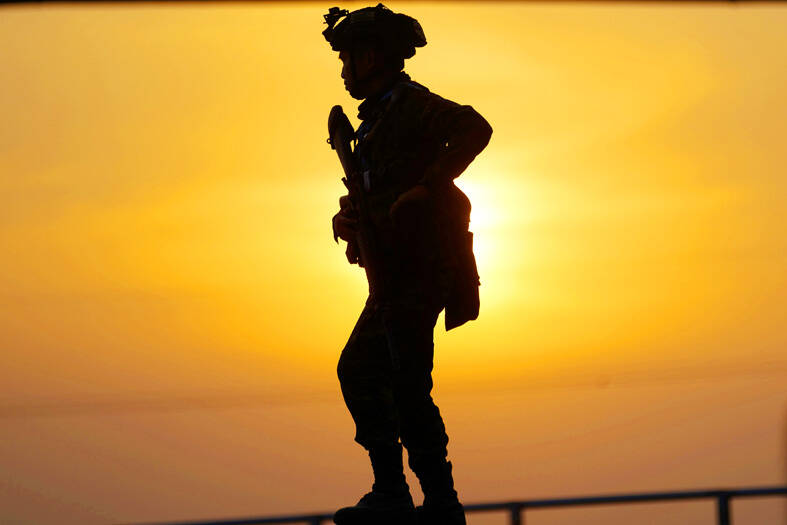
Photo: AP
“I’m very anxious. When I’m sleeping, I am thinking about whether I will have to go to jail. I will lose a lot of things — I already have a business now. I will lose everything,” Netiwit, 27, said.
However, “I think someone has to do this, to show that we have a problem,” he added.
Netiwit said the system was outdated, ineffective and unfairly affected the poorest, who were less well placed to find ways to avoid the draft.
It was also part of a wider system that undermined the country’s democracy, he said.
The prominent activist first announced his objection to military service as a teenager, after the military seized power in a coup in 2014. It was only last year that the former coup leader Prayuth Chan-ocha, who later became prime minister, left office, after his party’s humiliating electoral defeat.
Military service “brainwashes people,” Netiwit said. “I think that military service is one thing that holds our country to be ruled by the military.”
Move Forward, a youthful pro-reform party, won most votes in last year’s election, but was blocked from power by military-appointed senators, and so a coalition was formed between Pheu Thai, the party of former Thai prime minister Thaksin Shinawatra, and its former enemies in pro-military parties.
The concept of being a conscientious objector is relatively new in Thailand, said Panuwat Panduprasert, a political science professor at Chiang Mai University.
This was partly because older generations were less likely to perceive the obligation as a violation of their rights, or to want to risk protesting against the military, he said.
There are also many ways, legal and illegal, for people to avoid military service — provided they have the resources.
One of the most common options is to take a military training course for one day a week during secondary school.
That option is not available to all students.
Students “have to have a qualifying exam,” Panuwat said. “In practice, it turns out that the system is biased towards students from prestigious schools.”
People can also be exempted on medical grounds, or if they become a monk of a certain rank. Others use illegal means such as bribery.
The system was stacked against the poorest, with those who were forced to serve losing jobs or career opportunities, Netiwit said.
Past research by Amnesty International found evidence that new conscripts face violence, humiliation and sexual assault, with LGBT conscripts particularly vulnerable. High-profile deaths in training camps have also raised questions about their treatment.
Last year, eight military personnel were jailed for wrongful exercise of duties and negligence, after the torture and killing of a conscript in 2011.
Although Thai Minister of Defense Sutin Klungsang has said that such incidents are rare, they have added to pressure for reform.
Last month, the hashtag “end mandatory conscription” went viral on social media after Move Forward lawmaker Tisana Choonhavan called on the army to investigate the suicide of a conscript who had previously worked as her assistant.
Before his death, he had told her that he was stressed, and had been ordered to sweep the floors and mow the lawns of his commander’s house.
The army denied there was a connection between his death and treatment as a conscript.
Later, a naval conscript posted a widely shared video about how he had been ordered to do the household chores for his commanding officer, including washing underwear, cleaning the dishes and clearing bottles of alcohol.
In the past, people were less likely to openly criticize the military, Netiwit said.
“People didn’t dare to talk [like] this in public because they think they will be in trouble,” he said.
Today, the situation had changed, he said, referring to youth-led mass protests in 2020 that not only called for reform of the military, but also broke a deeply ingrained taboo and criticized the monarchy.
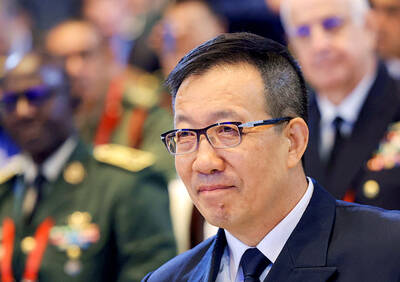
BEIJING FORUM: ‘So-called freedom of navigation advocated by certain countries outside the region challenges the norms of international relations,’ the minister said Chinese Minister of National Defense Dong Jun (董軍) yesterday denounced “hegemonic logic and acts of bullying” during remarks at a Beijing forum that were full of thinly veiled references to the US. Organizers said that about 1,800 representatives from 100 countries, including political, military and academic leaders, were in Beijing for the Xiangshan Forum. The three-day event comes as China presents itself as a mediator of fraught global issues including the wars in Ukraine and Gaza. Addressing attendees at the opening ceremony, Dong warned of “new threats and challenges” now facing world peace. “While the themes of the times — peace and development —
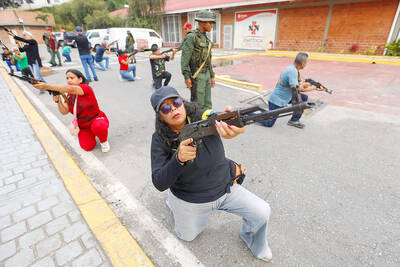
Venezuela on Saturday organized a day of military training for civilians in response to the US deployment in the Caribbean, and amid new threats from US President Donald Trump. About a month ago, Washington deployed warships to international waters off Venezuela’s coast, backed by F-35 jets sent to Puerto Rico in what it calls an anti-drug and anti-terrorism operation. Venezuelan Minister of Defense Vladimir Padrino Lopez has accused Washington of waging “undeclared war” in the Caribbean, after US strikes killed over a dozen alleged drug traffickers off his country’s coast. Caracas also accused the US of seeking regime change, and
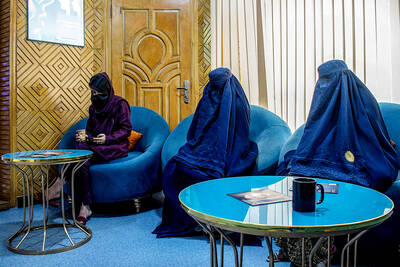
Decked out with fake crystal chandeliers and velvet sofas, cosmetic surgery clinics in Afghanistan’s capital are a world away from the austerity of Taliban rule, where Botox, lip filler and hair transplants reign. Despite the Taliban authorities’ strict theocratic rule, and prevailing conservatism and poverty in Afghanistan, the 20 or so clinics in Kabul have flourished since the end of decades of war in the country. Foreign doctors, especially from Turkey, travel to Kabul to train Afghans, who equally undertake internships in Istanbul, while equipment is imported from Asia or Europe. In the waiting rooms, the clientele is often well-off and includes men
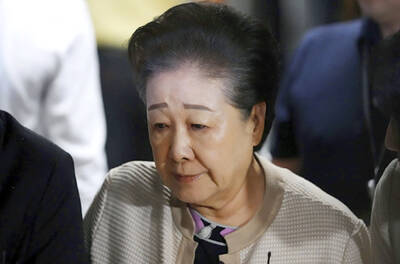
BRIBERY ALLEGATIONS: A prosecutor said they considered the risk of Hak-ja Han tampering with evidence to be very high, which led them to seek the warrant South Korean prosecutors yesterday requested an arrest warrant for the leader of the Unification Church, Hak-ja Han, on allegations of bribery linked to the country’s former first lady and incitement to destroy evidence. The move came a day after the 82-year-old was questioned over her alleged role in bribing former first lady Kim Keon-hee and a lawmaker. Founded in 1954 by her late husband, Sun Myung Moon, the Unification Church has long been the subject of controversy and criticism, with its teachings centered on Moon’s role as the “second coming” and its mass weddings. Followers are derisively referred to as “Moonies.” However, the church’s